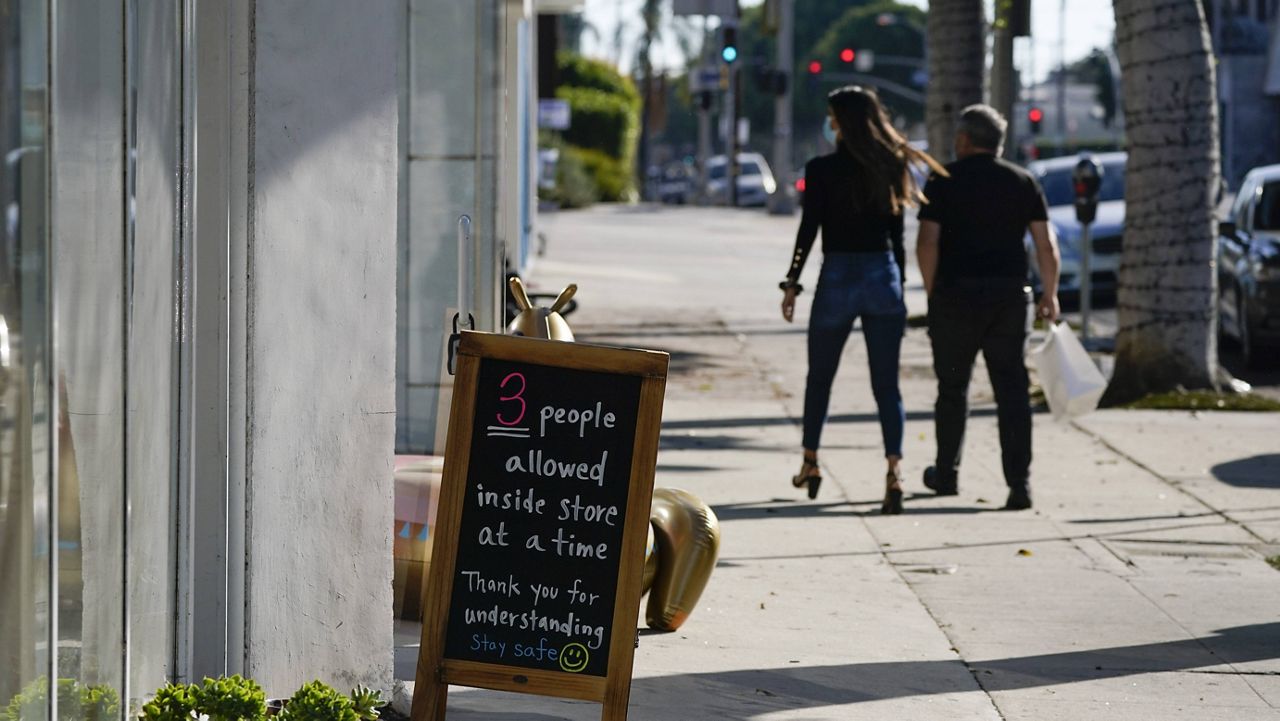LOS ANGELES (CNS) — Officials with the Southern California Association of Governments said Tuesday that an inclusive economic development strategy will be critical to the region's long-term recovery amid the COVID-19 pandemic.
What You Need To Know
- SCAG's economic forecasts showed that lower-income segments of the population have experienced dramatically more negative impacts, including deeper job losses and a projected longer recovery
- Those challenges are exacerbated by Southern California's higher cost of living, particularly in the area of housing
- Every county in the region faces a slow, prolonged recovery
- In L.A. County, the tourism sector "will likely take years before it reaches post-pandemic highs as global travel recovers and people feel more comfortable" according to Shannon Sedgwick, director of the Institute for Applied Economics
More than 400 leaders in business, public policy, housing, and education participated in the 11th annual Southern California Economic Summit, held virtually Tuesday by SCAG. The summit featured forecasts from the region's top economists and a focus on "Charting an Inclusive Regional Recovery," which SCAG officials said they have prioritized as a key initiative this year.
"We face challenges on multiple fronts, a pandemic unlike anything we've experienced in our lifetimes, a resulting economic downturn worse than anything we've seen since the Great Depression and an equity gap that has reached historic levels," said SCAG President Rex Richardson, who is also a Long Beach city councilman. "As we build our recovery strategy, creating an environment where everyone has the opportunity to succeed is essential to building a strong, resilient, sustainable economy."
SCAG officials said the theme of the event was echoed in the economic forecasts, which showed that lower-income segments of the population have experienced dramatically more negative impacts, including deeper job losses and a projected longer recovery.
Those challenges are exacerbated by Southern California's higher cost of living, particularly in the area of housing, SCAG officials said.
Overall, the six-county SCAG region saw employment drop by more than 1.78 million jobs, or 19.7%, between February and April. The hardest-hit industries were leisure and hospitality (down 45.4%), other services (down 27.3%), information (down 22.7%), and nondurable goods (down 17.4%).
Despite that, housing costs have continued to increase, with home prices alone jumping 2.6% from August 2020 to September 2020.
SCAG officials said the disproportionate loss of low-wage and entry-level jobs places additional pressure on affordability concerns, which were affecting the region before the pandemic took hold.
Every county in the region faces a slow, prolonged recovery, the SCAG economists said.
In Los Angeles County, the tourism sector "will likely take years before it reaches post-pandemic highs as global travel recovers and people feel more comfortable," according to Shannon Sedgwick, director of the Institute for Applied Economics, and Tyler Laferriere, associate economist for the Los Angeles County Economic Development Corporation.
Similarly, in the Inland Empire, tourism-related sectors were the hardest hit and "will still be lagging pre-pandemic highs well after 2021," said John Husing of Economics & Politics Inc.
In Orange County, the hardest hit sector was leisure and hospitality, which saw considerable losses as restaurants, hotels, and Disneyland shut its doors for the first extended period since opening in 1955. Despite these losses, Orange County's diversified industry base has already made progress in rebuilding its labor market and business and consumer sentiment in the region is already improving, the economists said.
Ventura County, which had experienced sluggish growth leading up to the pandemic, "is likely to see a slow and prolonged recovery period with growth rates likely to lag those at the state level over the next few years," according to Matthew Fienup and Dan Hamilton from the Center for Economic Research & Forecasting at California Lutheran University.
In Imperial County, as with the region as a whole, a lack of additional federal stimulus along with rising COVID case counts will likely result in a much more prolonged recovery, if not additional job losses, said Michael Bracken of the Development Management Group.
"The opportunity before our region is that COVID-19 has provided clarity on the weaknesses and inequities in our economic structure, and we must now embark on the changes needed to assure a resilient and inclusive recovery," SCAG Executive Director Kome Ajise concluded.
More information about SCAG is at www.scag.ca.gov.




